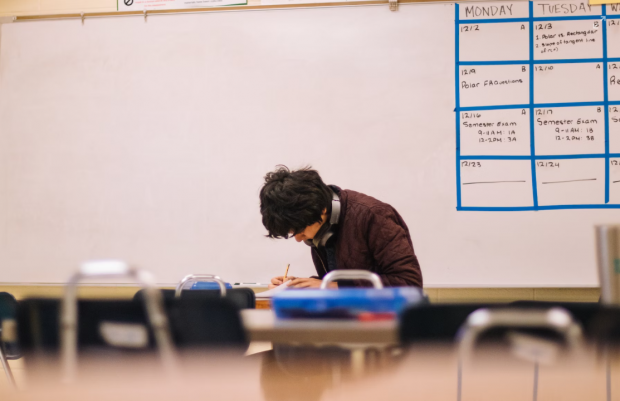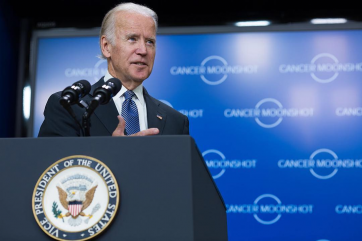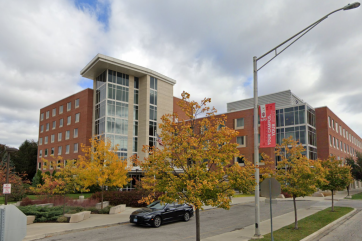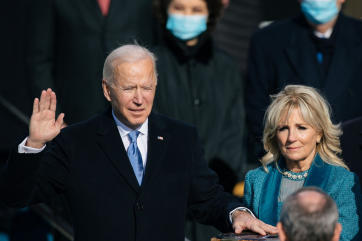Professor at Indian Premier University Resigns due to Stifled Academic Freedom
By Joy LiwanagA prestigious private university on the outskirts of India's capital is grappling with controversy following the resignation of one of its faculty members earlier this month.
The departure of Sabyasachi Das, an assistant professor of economics at Ashoka University, stems from a dispute over his academic paper titled "Democratic Backsliding in the World's Largest Democracy." The 50-page document alleges potential electoral manipulation during the 2019 general elections in favor of Prime Minister Narendra Modi's Bharatiya Janata Party (BJP).

Brave Callout of Manipulation
Das's paper contends that manipulation took the form of targeted electoral discrimination against India's largest minority group, Muslims. The abstract expresses concerns about weak monitoring by election observers, presenting a worrisome development for the future of democracy.
However, the paper's circulation on social media last month sparked a backlash from BJP supporters, leading to Das's resignation. The university, located in the BJP-ruled northern Haryana state, distanced itself from the paper, citing an incomplete critical review process. This move fueled further controversy, prompting the university's governing body to form an inquiry committee to assess the paper's academic merits.
READ ALSO: Research Fraud Committed By More Than 1,000 Authors; List Of Highly Cited Researchers Trimmed
Faculty Clamors for Upholding Academic Freedom
As the new academic session commenced, students and teachers protested Das's departure, highlighting broader concerns about declining academic freedom in India. Over 80 faculty members penned a letter to the university authorities, asserting that stifling critique poisons the lifeblood of pedagogy. They insisted that addressing the crisis requires upholding academic freedom rather than relying on apologies and resignations.
Despite the faculty's plea, the university maintained its position. Another economics professor, Pulapre Balakrishnan, resigned in protest, claiming that academic freedom was violated in the university's response to Das's paper. The economics department rallied behind Das, asserting that the paper adhered to accepted norms of academic practice, and the governing body's interference amounted to institutional harassment.
The economics department demanded Das's unconditional reinstatement and sought assurance from Ashoka's governing body that it would refrain from evaluating faculty research. The faculty issued a warning that unresolved questions regarding basic academic freedom would impede their ability to fulfill teaching obligations.
Despite these protests, Das refrained from responding to requests for comments on the controversy. The BJP criticized Das's paper as "half-baked," and India's intelligence agency reportedly visited the university in the wake of the controversy.
History of Academic Freedom Concerns
The ongoing debate over academic freedom at Ashoka University echoes previous instances. In 2021, academic and columnist Pratap Bhanu Mehta resigned, citing his association with the institution as a political liability. Renowned economist Arvind Subramanian also resigned, asserting that the university was no longer a bastion for academic expression and autonomy.
Calls for a committee on academic freedom were made following Mehta's resignation, but discussions faded over time. The recent controversy has reignited demands for such a committee.
Critics have accused the Modi government of undermining public and private institutions, reshaping history, and stifling independent research. A global survey placed India's academic freedom index in the bottom 30 percent among 179 countries.
Since Modi assumed power in 2014, several universities faced scrutiny, and academics critical of the BJP and Hindu nationalist affiliates faced consequences. The elite Indian Institute of Science canceled a discussion on a stringent law used by the government, and universities suspended students for watching a documentary critical of Modi.
While teachers at Ashoka University have decided not to disrupt teaching for now, concerns about the stifling and monitoring of educational institutions persist. The university's media team has not issued an official statement.
Amid the ongoing challenges to academic freedom, observers suggest that universities need to collectively decide how to respond to the current situation. The Modi government's alleged influence on educational institutions, curriculum changes, and appointments with ideological affiliations raise broader questions about the future trajectory of academic freedom in India.
RELATED ARTICLE: Auckland Star Academic's Legal Battle Unveils Systemic Challenges








